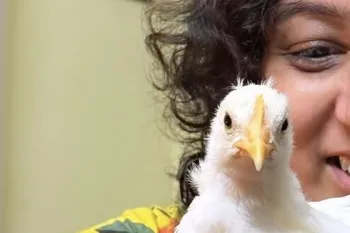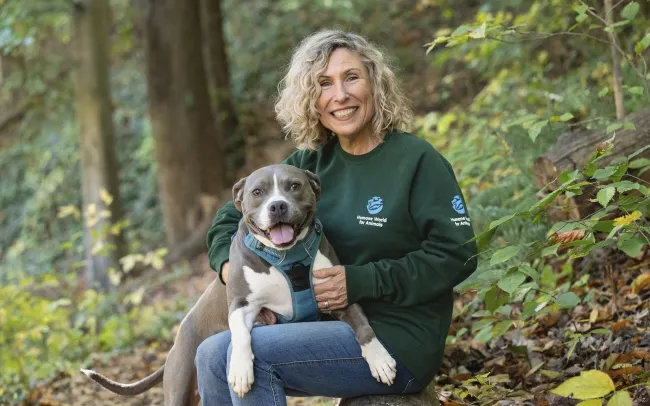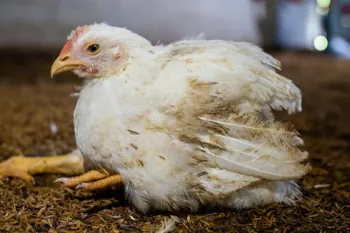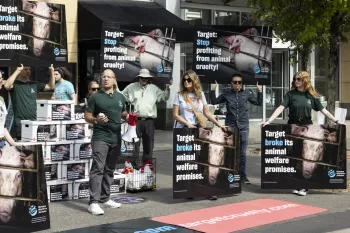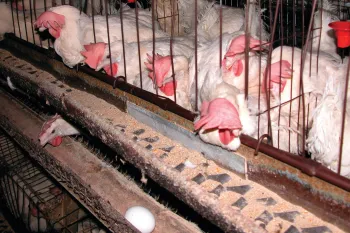When we say we want to change the world for animals, we mean it—and that’s why, so often, the stories I tell here are about fights to end animal cruelty on a massive scale.
But it is also important to remember the small, everyday kindnesses that make our movement for animals so powerful. And that’s why I want to tell you about something that happened recently at an egg farm in India.
There, on top of a trash pile where the bodies of lifeless chicks had been thrown away, something— no, someone—was moving.
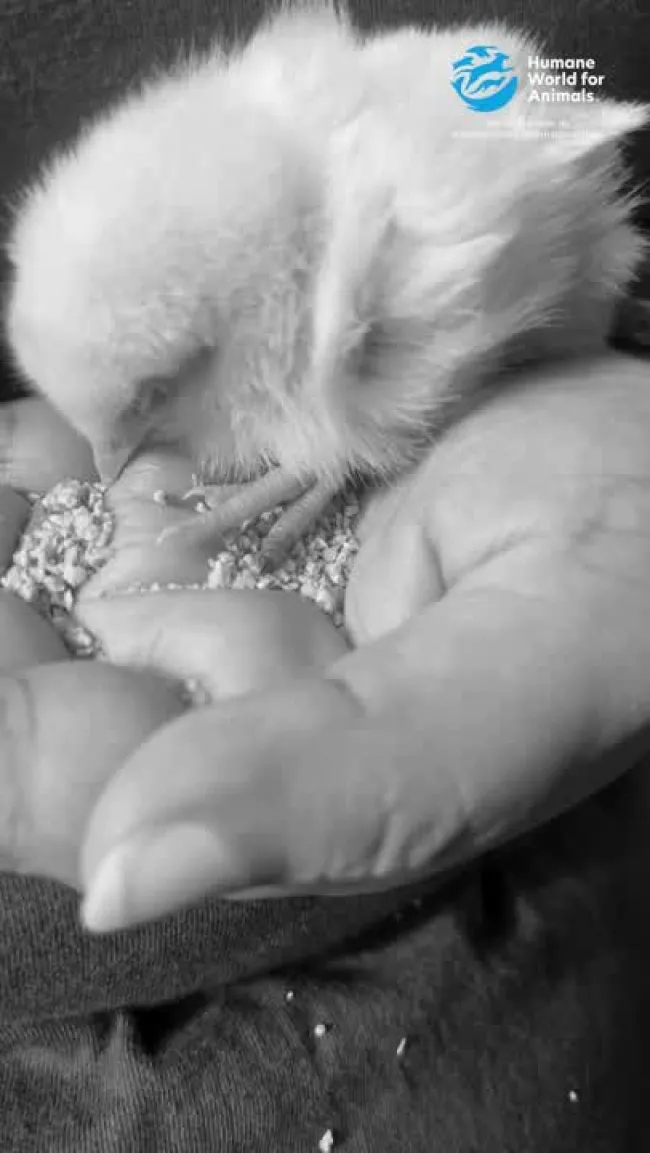
Sally Varma/Humane World for Animals
Sally Varma, public outreach senior specialist at Humane World for Animals India, saw the movement and, upon closer examination, found a baby chick who was very weak. “She had been thrown into the waste along with the dead ones,” Sally told me. “But I noticed she was still alive.”
This is just one of billions of chicks the egg industry the world over disposes of. It’s a reminder of the incredible wastefulness of animal agriculture, something that is no less tragic for its ubiquity.
Sally knew she had to give this chick the chance at a life that had nearly been lost. “To the egg industry her life was meaningless, but to me she was precious.”
The chick was just a day old when she was left for dead. But with a little love, she almost immediately transformed. Sally drove her home, and during the ride, which was several hours long, Sally said that the chick still seemed nearly lifeless. “I kept her close to my chest for warmth and kept hoping she would survive.”
When they arrived home, Sally gave Tweety a little food and water, and in just a few hours she was getting to know every member of the household. Now she enjoys walking across computer keyboards, basking in the sun and perching on Sally’s head.
Sally Varma/Humane World for Animals
Tweety has had the opportunity to show her personality, something that few chicks get to do and something most people seldom if ever get to see. Billions of farmed chickens around the world are unable to practice their natural behaviors because they are confined to tiny battery cages on egg farms or bred for meat in such a way that they grow faster than their own bodies can handle.
But these birds are fascinating creatures. They communicate with each other, using more than 30 vocalizations. Even before hatching, a chick can talk to their mother through the eggshell, peeping to let her know if they are cold and need to be moved. Chickens can also remember people, places and each other, and can even see colors in the ultraviolet range.
What I love about this story is how it shows that our team members live and breathe humane values—at work and at home. It is about transforming our treatment of animals at the global scale, but it is also about making a difference in ways large, small and impossible to measure.
Sally Varma/Humane World for Animals
“I see Tweety as family. She is my baby girl,” Sally said. “Every day with her reminds me why I do the work I do. It can be easy to forget that within the unfathomably large animal agriculture industry of billions of animals, there are individual lives just as precious as that of my little Tweety.”
